 Your new post is loading...
From Blade Runner to I, Robot, the big screens of Hollywood have predicted the rise of the machine. Automated intelligences will wait our tables and drive our cabs. They will serve us by performing menial tasks. But fact is now surpassing fiction. Automation has moved beyond the factory assembly line as computers are diagnosing illnesses, providing legal counsel, and make financial and political decisions. And if artificial intelligence really is faster, smarter and more reliable, what are we left with?
The answer is precisely that element which makes us less efficient and slower. Our humanity. But rather than being seen as a weakness, this is actually our strongest suit. It’s one we need to empower, because studies show that as the world becomes increasingly automated, computerised and digitalised, we are losing the very skills that define us as human. Just when we need them the most.
Our empathy is something that computers will always struggle to emulate. We need to celebrate what makes us different from even the smartest of the machines. While the future belongs to those who are able to navigate this increasingly digitalised world of ours, the choicest spoils will fall to those who can combine technological fluency with emotional intelligence. Learn more / En savoir plus / Mehr erfahren: https://www.scoop.it/t/21st-century-learning-and-teaching/?&tag=Empathy https://www.scoop.it/t/21st-century-learning-and-teaching/?&tag=Emotional+intelligence
Via Gust MEES
The concept of Big Data is a relatively new one. It denotes the availability of vast volumes and sources of data, which were not available before. By itself, Big Data is powerful, and when combined with Artificial Intelligence and machine learning, the opportunities presented by this combination are just endless. As big data moves to the maturity phase, firms are now looking for ways to combine the scale of AI and the agility of Big Data processes to bring about an acceleration on the delivery of the much-needed business value.
The Power of Combining AI and Big Data
Most businesses are data-driven. As a result, firms with the right type and quantity of data has the upper hand over rivals. Convergence between AI and big data is promising. Firms can now access large volumes of broken down and categorized data by their usefulness. Traditional computer processors cannot process big data. Big data can best be processed by a GPU database, which has the flexibility needed to handle a significant amount of data of different types. Learn more / En savoir plus / Mehr erfahren: https://www.scoop.it/t/21st-century-learning-and-teaching/?&tag=AI https://www.scoop.it/t/21st-century-innovative-technologies-and-developments/?&tag=AI https://www.scoop.it/t/21st-century-learning-and-teaching/?&tag=Big+Data...
Via Gust MEES
It is almost universally acknowledged that in order to succeed in the 21st century, students must learn much more than the “three Rs” and basic computer competency. The term “21st century skills” is used often in educational circles to refer to a range of abilities and competencies that go beyond what has traditionally been taught in the classroom, including problem solving, communication, collaboration, creativity and innovation. Others define the term as “information literacy, media literacy, and information, communication and technology literacy.” More importantly, students need these skills because employers across a huge variety of industries increasingly demand them. A recent McKinsey report indicated that close to 40 percent of employers could not find people with the right skills while 60 percent “complain[ed] of a lack of preparation.” Even jobs that were once considered vocational, such as welding, petroleum production, and even factory work, are now high tech, and require specialized knowledge that includes not only a robust science background and familiarity with the computerized machinery that keeps heavy industry humming, but also critical thinking and collaboration skills. In other words, 21st century job growth is outpacing our ability to develop a prepared workforce, making it more critical than ever to teach these skills. Learn more / En savoir plus / Mehr erfahren: https://gustmees.wordpress.com/2015/07/19/learning-path-for-professional-21st-century-learning-by-ict-practice/ https://gustmees.wordpress.com/2015/10/29/if-i-would-own-a-company-what-skills-would-i-expect-from-my-workers-in-21st-century/
Via Gust MEES
During this time of significant educational change, we are forced to ask ourselves, what is the role of the teacher?
Teachers continue to be central to learning, but the role is changing significantly. Our children still need to develop real skills and real knowledge, but they also need to be self-reliant, resilient, and fully capable of re-inventing themselves. This means students must learn how to self-direct their learning.
So if students are self-directing their learning, what's the role of the teacher?
Teachers build the curriculum/lessons with the individual student based on his/her needs and interests rather than move through a fixed curriculum en masse.
Teachers provide the experiences and tools to access new knowledge in specific areas of interest as facilitators of individual pathways, rather than being a provider of the content or expert in one or every area,Teachers become experts in how people learn, not only in teaching.
Teachers support a community of learners in teams, possibly of multiple ages, rather than alone in classrooms with fixed grades of students.
Teachers have more autonomy over their daily schedule, and can be flexible to adjust their schedules to support student needs.
Teachers provide opportunities for real-world, connected, practical learning rather than isolated academics.
These are the types of changes in the teacher's role that are fundamental to developing students who are capable of independent learning and reinvention in a rapidly changing world.
Learn more / En savoir plus / Mehr erfahren: https://gustmees.wordpress.com/2013/05/25/so-whats-the-change-for-teachers-in-21st-century-education/
Via Gust MEES

|
Scooped by
Antonios Bouris
April 6, 2017 11:19 PM
|
Last week saw the judging for our unofficial Brexit passport design competition... here is a look at the nine proposals shortlisted by our judges.

|
Scooped by
Antonios Bouris
March 24, 2017 4:39 AM
|
It's not every day that you hear about a classic film line being brought back from the dead, but that's what's being announced today. Kodak Ektachrome film photographers.
We saw tons of new stuff at CES this year. But one thing that particularly caught our eye was Kubo, the robot that teaches kids how to code.
Kubo is a pretty simple robot – it’s about the size of a can of soda and has two wheels that allow it to roll around a desk or table. But what it lacks in advanced physical ability it makes up for in brains.
Kubo comes with its own programming language called TagTile. The language consists of puzzle pieces that fit together to give Kubo instructions. For example, you could connect three pieces together – forward, turn, then another forward. Kubo then drives over these pieces oncer to “learn” the command, then can remember and perform it without needing the pieces.
Kubo reads the puzzle pieces using an RFID technology – each piece has an individual embedded RFID tag, and Kubo itself has a reader built in.
While it sounds simple, it’s a pretty good way to teach kids the basics of programming without having them stare at a screen. Learn more / En savoir plus / Mehr erfahren: http://www.scoop.it/t/21st-century-learning-and-teaching/?tag=Ideas+for+makerspaces https://gustmees.wordpress.com/2014/08/24/coding-a-new-trend-in-education-and-a-big-responsibility/
Via Gust MEES
By teaching students these skills in an authentic, applicable way, will they see each other differently? It’s worth finding out. With so many curricular and time restraints on teachers, how can we be expected to explicitly teach empathy in a meaningful way?
A Definition Of Empathy
Webster’s dictionary defines empathy as: the action of understanding, being aware of, being sensitive to, and vicariously experiencing the feelings, thoughts, and experience of another of either in the past or present without having the feelings, thoughts, and experience fully communicated in an objectively explicit manner; also: the capacity for this. Learn more / En savoir plus / Mehr erfahren:
http://www.scoop.it/t/21st-century-learning-and-teaching/?tag=Empathy
Via Gust MEES
|
Unstructured learning is an authentic real-world way of learning. That’s because the real world itself doesn’t have neat compartments or set disciplines for success. It demands adaptability, patience, and a willingness to learn and to use what is learned in the moment. Most of all, it requires us to take full responsibility for what we learn. It’s time to play and to let go of rigid teaching in favour of unstructured learning. For this to happen, teachers have to foster trust in their students. They have to be willing to take a step back and put a little slack on the reins of traditional pedagogy. In short, we need to let things get a little messy. Ease into it—it’s a bold step and it will transform everything. Learn more / En savoir plus / Mehr erfahren: https://www.scoop.it/t/21st-century-learning-and-teaching/?&tag=modern-education
Via Nik Peachey, Gust MEES
If schools are supposed to be training the workers of the future, the growing consensus is that most of them are not doing a very good job of it. In a trend that seems long overdue, technology-based companies are increasingly turning inward to bridge the gap between the skills they need employees have and the skills they’re actually graduating from college with. In 8 Critical Skills For A Modern Education, we offered one view of what ‘modern workplace’ skills might look like, and have argued many times that true ’21st-century learning’ should change what work looks like all together. (Nevermind that, in our estimation anyway, the purpose of school is not job training.) Still, companies (for now, anyway) need human workers with certain skills that, increasingly, they just don’t have. It’s nearly 2018, and the concept of 21st-century skills is more than two decades old now. Learn more / En savoir plus / Mehr erfahren: https://gustmees.wordpress.com/2015/10/29/if-i-would-own-a-company-what-skills-would-i-expect-from-my-workers-in-21st-century/ https://gustmees.wordpress.com/2015/07/19/learning-path-for-professional-21st-century-learning-by-ict-practice/
Via Stephania Savva, Ph.D, Ivon Prefontaine, PhD, Gust MEES
An idea that is beginning to gain a lot of favour in educational circles at the moment is the notion of fixed versus growth mindsets, and how they might relate to students and learning. Based on the work of Stanford University psychologist, Carol Dweck, the idea of mindset is related to our understanding of where ability comes from. It has recently been seized upon by educators as a tool to explore our knowledge of student achievement, and ways that such achievement might be improved. Learn more / En savoir plus / Mehr erfahren: http://www.scoop.it/t/21st-century-learning-and-teaching/?&tag=Growth+Mindset
Via Gust MEES
Does the character of our leaders matter? According to research done by KRW International it really, really, does!
Welcome to a Leadership Channel Podcast on TotalPicture. Joining Peter Clayton today is Fred Kiel, PhD, co-founder of KRW International, the author of Return On Character. For more than thirty years, he has helped Fortune 500 CEOs and senior executives build organizational effectiveness through leadership excellence and mission alignment. Strategy+Business considers Return on Character one of the best business books of 2015.
With Credit Suisse replacing their CEO after years of fines and the future of companies like Uber and Yahoo! being questioned because of bad CEO behavior, (or the current CEO poster boy, infamous former Turing CEO Martin Shkreli), could this be the wakeup call we need to start measuring how the character of a leader impacts their organization's performance?
For the first time we now have data to measure the correlation. In Return On Character (Harvard Business Review Press,), the findings are revealed from KRW International's seven-year study on the financial impact of character. Learn more / En savoir plus / Mehr erfahren: http://www.scoop.it/t/21st-century-learning-and-teaching/?&tag=LeaderShip http://www.scoop.it/t/21st-century-learning-and-teaching/?&tag=LeaderSkills http://www.scoop.it/t/21st-century-learning-and-teaching/?&tag=Character http://www.scoop.it/t/21st-century-learning-and-teaching/?&tag=Soft+Skills Check also: - http://www.scoop.it/t/21st-century-learning-and-teaching?tag=Emotional-Intelligence - http://www.scoop.it/t/21st-century-learning-and-teaching?tag=Emotions-and-Learning - http://www.scoop.it/t/21st-century-learning-and-teaching?tag=Empathy - http://www.scoop.it/t/21st-century-learning-and-teaching?tag=EQ - http://www.scoop.it/t/21st-century-learning-and-teaching?tag=Daniel-GOLEMAN
Via Gust MEES

|
Scooped by
Antonios Bouris
February 23, 2017 8:49 PM
|
The Montreux Jazz Festival gave carte blanche to French illustrator Malika Favre to create the poster for the 51st edition.
|



 Your new post is loading...
Your new post is loading...







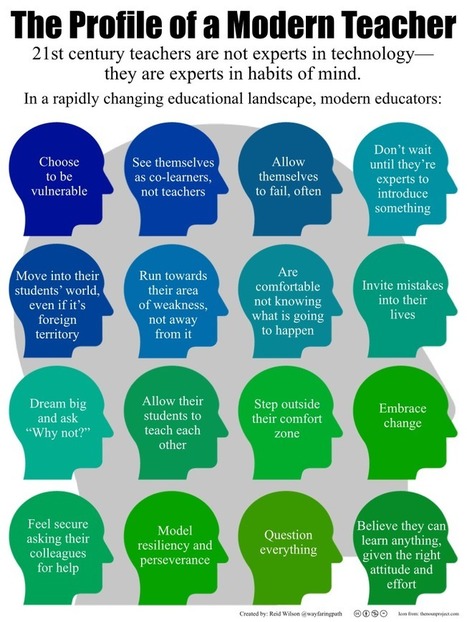



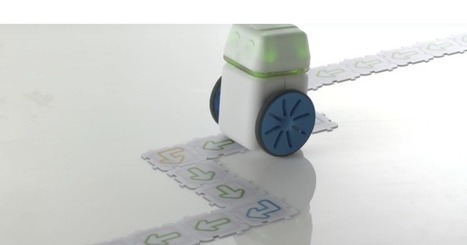





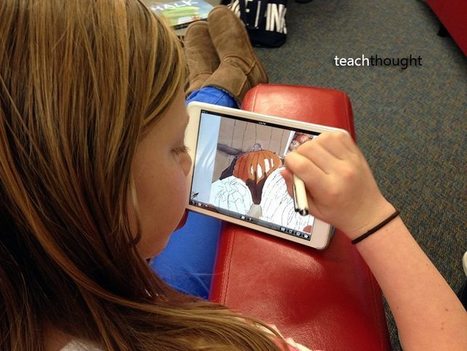

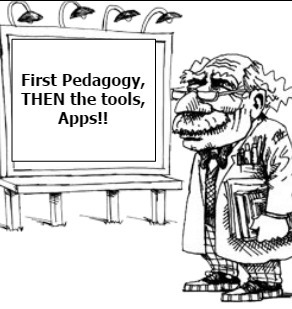
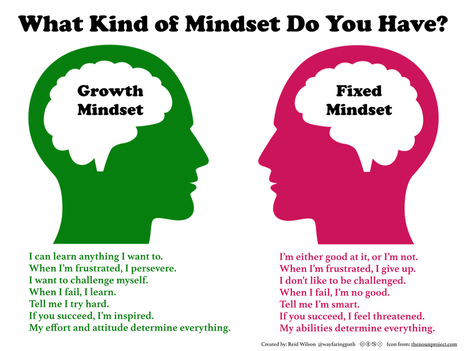



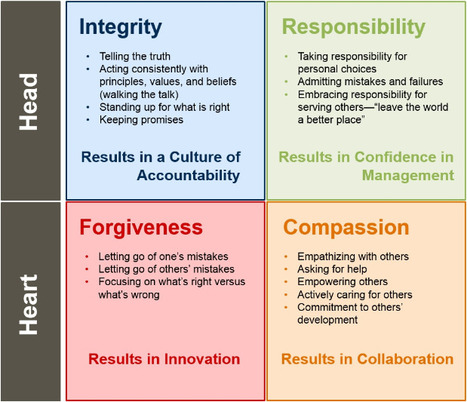



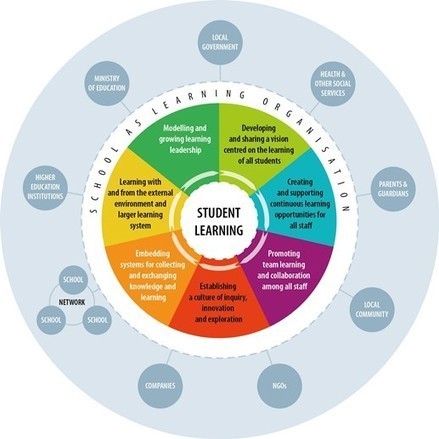








Finally I can see this topic emerge in public discussion about education - something I've been privately preaching about.